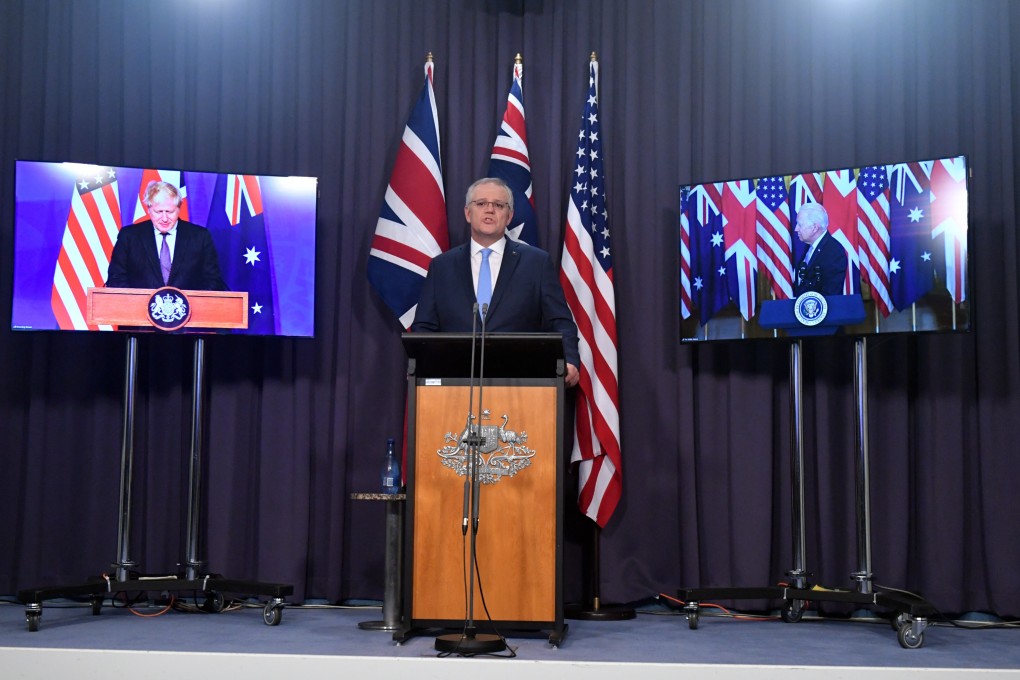Advertisement
Malaysia and Indonesia warn Australia’s Indo-Pacific pact could trigger nuclear arms race
- The new AUKUS alliance will involve Australia, the US and Britain exchanging technology and intelligence
- Australia will have access to US nuclear technology, which will enable it to build nuclear submarines
Reading Time:1 minute
Why you can trust SCMP
46

Malaysia on Saturday joined Indonesia in expressing concern that a new security pact involving Australia, the US and Britain could provoke a nuclear arms race in the Indo-Pacific region.
Australia’s Prime Minister Scott Morrison called his Malaysian counterpart Ismail Sabri Yaakob on Friday to explain that the formation of the tripartite group – known as AUKUS – was to help it acquire nuclear-powered submarines, according to a statement from the Malaysian government.
Ismail Sabri told Morrison he was concerned AUKUS could provoke other powers to act more aggressively in the region. The two leaders renewed commitments to ensure peace, especially in the Indo-Pacific, according to the statement.
Advertisement
Malaysia’s statement did not mention China, but Beijing’s foreign policy in the region has been increasingly assertive, particularly its maritime claims in the resource-rich South China Sea, some of which conflict with Malaysia’s own claims.
Indonesia earlier said it was “deeply concerned over the continuing arms race and power projection in the region”, and called on Australia to meet its nuclear non-proliferation obligations and to uphold the rule of law as set out in the United Nations Convention on the Law of the Sea 1982, or UNCLOS.
Advertisement
Singapore struck a neutral tone, with the city state saying it hopes the deal “would contribute constructively to the peace and stability of the region and complement the regional architecture”.
Advertisement
Select Voice
Select Speed
1.00x